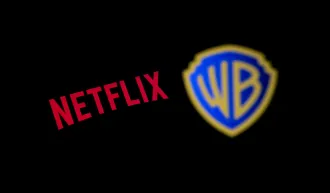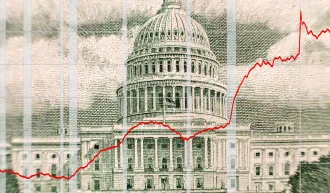October 01, 2006
| by Stanford GSB StaffYou might think that the head of state of a global power would be an unlikely individual to jump into a technical debate on accounting standards. Yet in 2003 French President Jacques Chirac did just that — taking an active role in voicing concern regarding the adoption of International Financial Reporting Standards (IFRS) by publicly traded firms.
The IFRS are a set of accounting standards issued by the International Accounting Standards Board (IASB) with the goal of globally aligning corporate accounting practices regardless of the business’ country of origin. Russia, South Africa, Hong Kong, Australia, and Singapore, as well as a number of other capital markets, had already implemented IFRS. Then, in 2002, the European Union issued regulations requiring all publicly listed firms in its jurisdiction — some 7,000 companies — to prepare financial reports in accordance with IFRS, effective as of the start of 2005.
This wholesale replacement of country-specific accounting rules with a new set of standards was one of the largest financial reporting changes in European history — and the move was met with a storm of controversy.
Those in favor of implementing IFRS argued that it would make it easier to compare the financial performance of companies across different countries. This would facilitate the flow of capital across borders and make the European capital markets more globally competitive, supporters argued.
But at the very center of the opposition was the fact that one of the IFRS standards, International Accounting Standard (IAS) 39, requires firms to report some financial instruments on the balance sheet at fair value. Because changes in fair value require regular updates of financial statements and could induce volatility in income and equity, the anticipated adoption of IAS 39 threatened some firms’ ability to continue issuing financial reports with obfuscated financial and hedge instrument values. This, in turn, inspired some firms — particularly French banks with large holdings of financial instruments such as demand deposits — to strongly oppose and lobby against the changes proposed in IAS 39.
“This made headlines throughout the European business press and became such a huge issue that even Chirac felt compelled to get involved,” says Alan Jagolinzer, assistant professor of accounting at the Graduate School of Business, who has been studying the market’s assessment of IFRS adoption by the European Union. In July 2003, Chirac wrote a letter to Romano Prodi, president of the European Commission, to express concern that adoption of the IFRS — and particularly IAS 39 — would have “nefarious consequences” on the financial stability of firms throughout Europe.
Given some firms’ strong vocal opposition to these accounting changes, Jagolinzer and fellow researchers felt it would be interesting to see if the shareholders agreed. As it turned out, they didn’t, according to a study he is conducting with Mary Barth, the Joan E. Horngren Professor of Accounting at the Stanford Business School; Christopher Armstrong, a Stanford doctoral student; and Edward Riedl of the Harvard Business School. Barth sits on the IASB.
“There was this resistance coming from the firms themselves, but shareholders appeared to favor harmonization,” that is, replacing country-specific rules with internationally standardized regulations, Jagolinzer says.
To assess the situation, Jagolinzer and his colleagues are studying the movement of the European stock markets on the days immediately surrounding 16 political and economic events affecting IFRS adoption. These events included:
- March 12, 2002, when the European Parliament passed the resolution that would require all European Union firms to adopt IFRS by 2005
- The July 4, 2003, public release of Chirac’s letter expressing concern about IFRS adoption
- The March 30, 2004, announcement by HSBC, Europe’s largest bank, that it would adopt IAS 39 in full, regardless of whether other firms adopted it
- The November 19, 2004, European Commission endorsement of the controversial IAS 39 standard but with some provisions “carved out” of the set of rules ultimately adopted by European firms six weeks later.
“We picked the events that we felt more or less laid out the evolution of IFRS adoption in Europe. Some of them clearly moved Europe closer to this idea of convergence, and some seemed to place convergence in jeopardy,” Jagolinzer says.
The researchers’ initial findings are that investors generally responded positively to events that increased the likelihood of adoption of IFRS, and negatively to events that decreased this likelihood. Specifically, they found that the average European firm price response to events that increased the likelihood of adoption was 0.21 percent greater than the average European firm price response observed within a set of randomly selected non-event days during the same period. Similarly, the average European firm price response to events that decreased the likelihood of adoption was 0.46 percent less than the average response observed during non-event days. “This suggests to us that investors see that the benefits of adoption outweigh the costs,” says Jagolinzer.
Furthermore, the stock price of European companies that were cross-listed on American stock exchanges such as NASDAQ and the New York Stock Exchange generally responded less to adoption events than did that for firms that were listed only on European exchanges. Cross-listed firms already complied with U.S. Generally Accepted Accounting Principles (GAAP), which are similar in many respects to both IFRS in general and IAS 39 in particular. Thus, adoption of IFRS was not as significant an event for these latter firms.
“For firms that had already chosen to comply with the U.S. rules, this was clearly not of much concern,” Jagolinzer says.
For media inquiries, visit the Newsroom.





